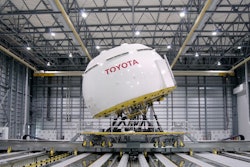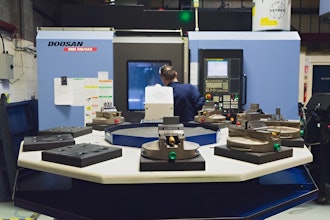Manufacturing organizations have been the leading innovators when it comes to lean methodology and process improvement. According to data from the White House, U.S. manufacturing research & development spending reached $273 billion in 2012. With intensive competition and globalization pushing prices down and demanding more advanced products, innovation is a must have for survival. Just look at your average automotive plant today. Several are already looking to automation, robotics and 3D printing to improve safety and technical capabilities for their customers, all while surpassing their competition.
Manufacturing organizations have spent decades refining their lean processes utilizing traditional software systems such as Enterprise Resource Planning (ERP), Manufacturing Execution Systems (MES) and Product Lifecycle Management (PLM). These systems have enabled scalable management of inventory, cost tracking and production management. It’s safe to say that organizations have pushed these systems to their limit. The next set of innovations will not push them further, but instead it will break them. And that’s a good thing.
In 2016, the focus will move to mobility and then ultimately to the industrial Internet of Things. Mobility was considered a top technology priority for manufacturing organization by PwC’s Global CEO Survey in 2015, stating that it is no longer an option but a need to remain competitive and lean in the market. Mobility is becoming synonymous with real time. For example, mobile apps can take a paper-based process that used to be manual and prone to human error and make it digital. The benefits of digitization transcend the automation of the task. The data that is now available in real time can be used to alert people that are affected all around the organization, and even predict incidents before they happen.
In January, The Institute for Supply Management released a report that U.S. manufacturers can expect a 4.1 percent increase in production this year. With production and operating rates expected to increase, manufacturing organizations will need mobility to have a real-time, 360-degree view of their production, supply and inventory levels.
Developing and implementing mobility in the manufacturing industry can be an expensive and tedious process if it is done using traditional methods. The traditional process of mobilizing manufacturing systems could take months or even years to fully implement, and after that can be even more confusing to use. When a change or new app needs to be created to keep operational processes moving, developers or costly consultants must be brought in, adding more stress and budget constraints for management. Manufacturing companies will quickly realize that they cannot manage mobility using the same methods as they did to build and manage their traditional enterprise systems.
When a manufacturing organization wants to avoid the complexity that comes with mobilization through traditional processes, rapid mobile app development (RMAD) provides a code-free tool to speed up app creation. With rapid mobile app development, operational and production management can create their own functional mobile apps for managing production processes from their smartphone or tablet. RMAD mitigates the expensive process of working with software developers that are familiar with code, and replaces it with foundational building blocks that make it simple for anyone to develop multiple mobile apps.
Rapid mobile app development platforms also make it simple for manufacturing organizations to connect to current ERP systems for managing data. With RMAD, there is no need to throw away an ERP system and start from scratch. The right one can connect to your existing enterprise system to leverage the data manufacturers have used and gathered through decades of lean processes, and deploy it to any mobile device.
For example, an expedited receiving mobile app developed with RMAD helps manufacturing organizations leverage existing ERP systems to improve visibility of their inventory. Without this visibility, plant managers must take on the role of material expediters, wasting precious time at the receiving dock looking for past due materials. Mobile apps give these plant managers the visibility to know as soon as the materials they need have arrived, eliminating a once extremely time-consuming process.
When lean manufacturing plants run with a rapid mobile app development platform, management can look at their app and identify which material is urgently required on the plant floor. This gives users the capabilities to alert material handlers and production supervisors when critical shipments have arrived.
The expedited receiving mobile app mentioned above is just one example of a simple app created with rapid app development tools that does one task very well, and helps reduce wasteful processes and spending. The capabilities that RMAD puts in the hands of the organization to create several small, useful mobile apps are endless. Once a manufacturing team has created their first app, they can reuse features and parts of that app to quickly develop new ones. RMAD helps organizations cut down on the amount of time and money that would otherwise be spent developing traditional, complicated mobile apps.
Despite the gains that lean manufacturing organizations have made in productivity over the years, they fall short if there are still small fractional issues. Rapid mobile app development gives manufacturers the ability to make small fractional improvements, while delivering a new opportunity for making huge gains in improvement processes that were unforeseen due to a lack of supporting technology. With RMAD, manufacturers can constantly develop and refine mobile apps that best meet their organizational needs in the half the time, and at a fraction of the cost.
George Mashini is CEO of Catavolt Inc.






















